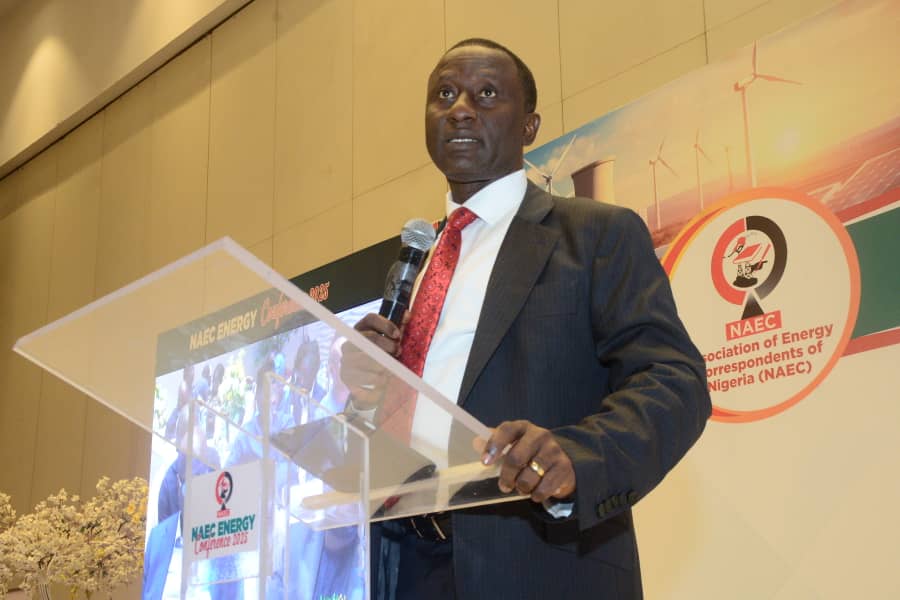Uche Cecil Izuora
President of Masters Energy Group and former Minister of State for Mines and Steel Development, Dr. Uchechukwu Ogah, has said that Nigeria’s energy future is contingent upon effectively balancing significant reforms with practical national realities, urging stakeholders to harmonize policy, investment, and innovation to achieve sustainable growth.
Speaking at the National Association of Energy Correspondents (NAEC ) Energy Conference 2025, on the “theme ‘Nigeria’s Energy Future: Optimising Opportunities and Addressing Risks for Sustainable Growth’, Dr. Ogah called for pragmatic reforms and sustained policy consistency to drive Nigeria’s energy transition.
Ogah acknowledged the transformative potential of the Petroleum Industry Act (PIA) of 2021 and the Electricity Act of 2023, noting that successful implementation would require deliberate coordination across government and industry.
“Nigeria’s energy future is not a choice between opportunity and risk; it is a challenge to navigate both dynamics together,” he said. “Success demands a multi-pronged strategy that leverages our strengths while confronting our vulnerabilities head-on.”
Dr. Ogah framed Nigeria’s energy path as one of managing both opportunity and risk with discipline. He referenced a Nigerian Society of Engineers (NSE) report indicating that national power generation remains below 50 percent of installed capacity due to gas constraints and transmission bottlenecks.
He identified three paramount challenges: ensuring reforms yield measurable results, maximizing the value of hydrocarbon assets before the global decline accelerates, and providing affordable power to all citizens.
The Masters Energy boss emphasized that oil and gas remain the economy’s backbone, accounting for nearly 70 percent of export earnings and sustaining millions of jobs.
He stressed that gas commercialisation, through projects like the Utorogu Gas Processing Facility, is vital, describing gas as Nigeria’s strategic bridge fuel that powers industries, enables clean cooking, and can position the nation as an LNG export leader.
However, he warned that underinvestment, oil theft, and insecurity pose serious threats to the full implementation of the PIA.
Dr. Ogah stated that the global energy transition offers Nigeria the greatest economic opportunity of the 21st century, highlighting the nation’s significant potential in solar, wind, and youthful human capital.
He urged the country to exceed its 30 percent renewable capacity target by 2030, arguing that inaction would risk turning Nigeria into a consumer or dumping ground for imported technologies.
He passionately declared, “We must not be consumers of the green economy; we must be creators within it.”
Dr. Ogah commended the Association of Energy Correspondents of Nigeria (NAEC) for maintaining vital dialogue across government, industry, and the media regarding the nation’s energy transformation.
He pinpointed three major growth frontiers: gas, renewables, and innovation.
He advocated for the development of utility-scale solar farms, mini-grids, and local solar manufacturing under the proposed Nigerian Solar Manufacturing Initiative. Furthermore, he identified blue hydrogen, biofuels, and critical mineral exploration as crucial pathways for industrial diversification, underscoring that every solution, “From solar in Olorunsogo to blue hydrogen in the Delta,” must serve both growth and sustainability.
The Business leader outlined the main risks undermining energy development as policy inconsistency, infrastructure gaps, security concerns, and skills shortages.
He called for practical solutions, including establishing a single-window licensing system, modernizing the national grid, and implementing benefit-sharing models to enhance investor confidence and community trust, observing that Policy certainty attracts capital; community trust protects it.
On human capital, he proposed the creation of a National Energy Transition Academy and issued a strong caution against industrial unrest, referencing the recent PENGASSAN and Dangote Refinery dispute.
Dr. Ogah concluded that energy reform is a national, joint project, urging industry players to align with ESG principles, the government to deepen reform consistency, and journalists to sustain solution-driven energy reporting.
He rallied stakeholders toward a unified vision: “By optimising today’s hydrocarbon assets and building tomorrow’s clean-energy ecosystem, we can fuel sustainable growth for every Nigerian.”


